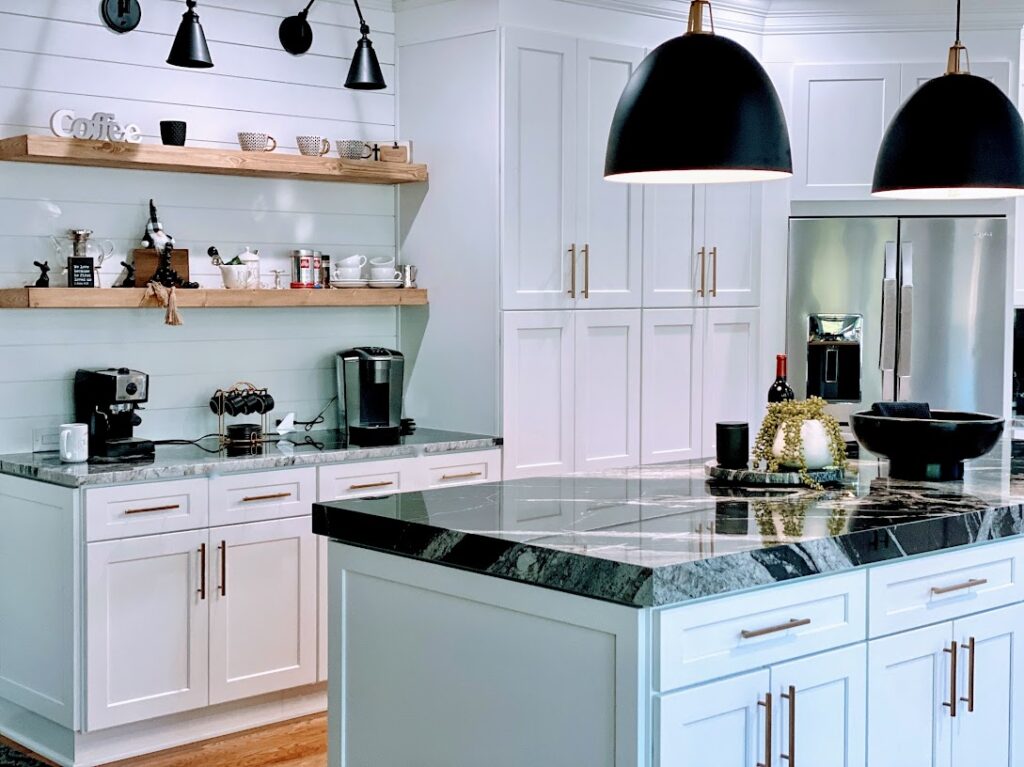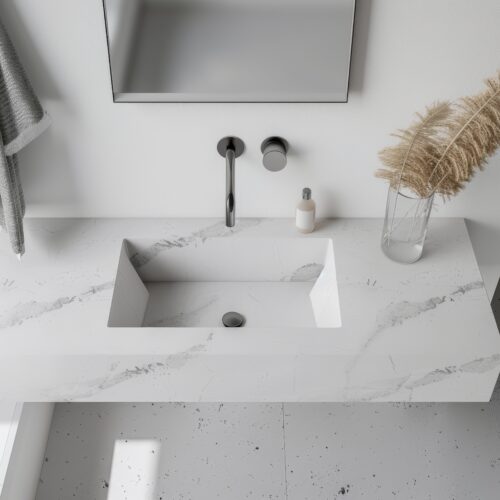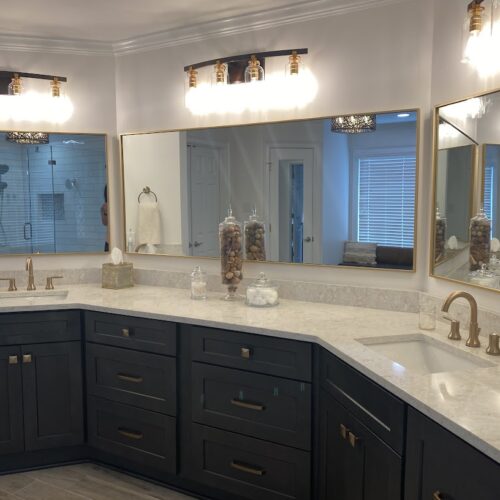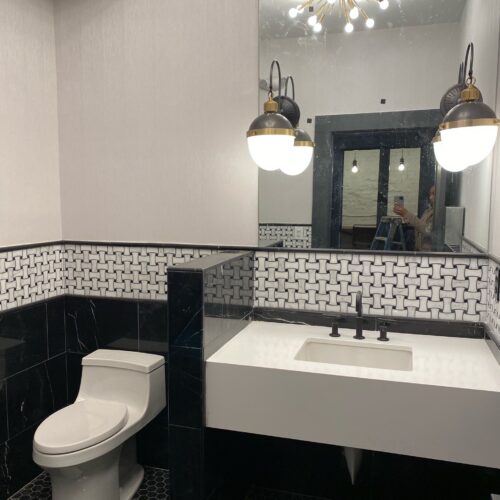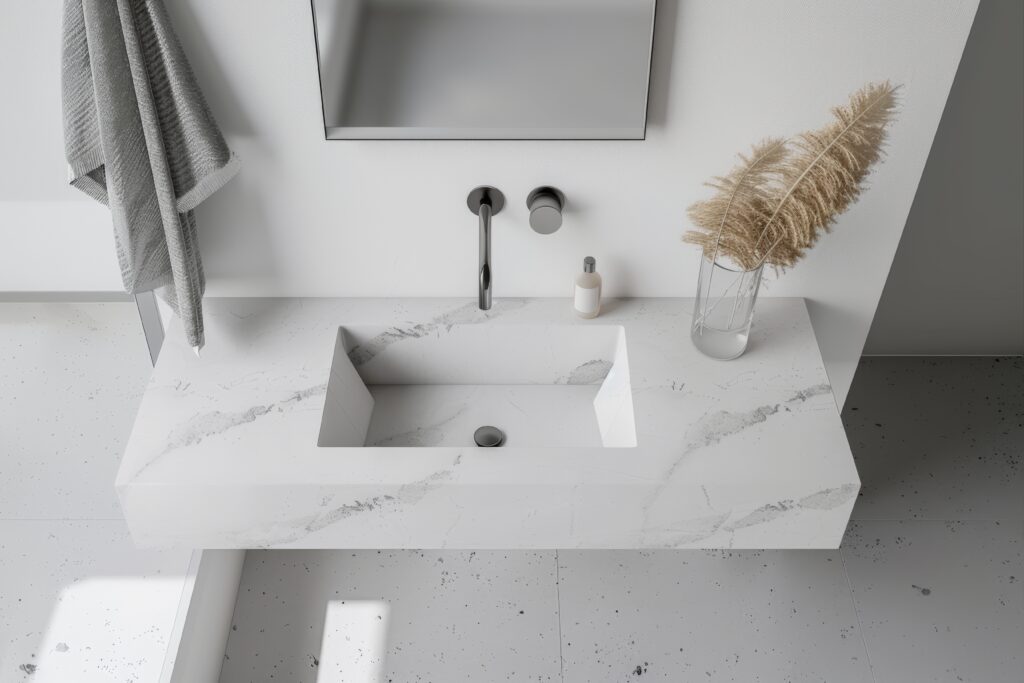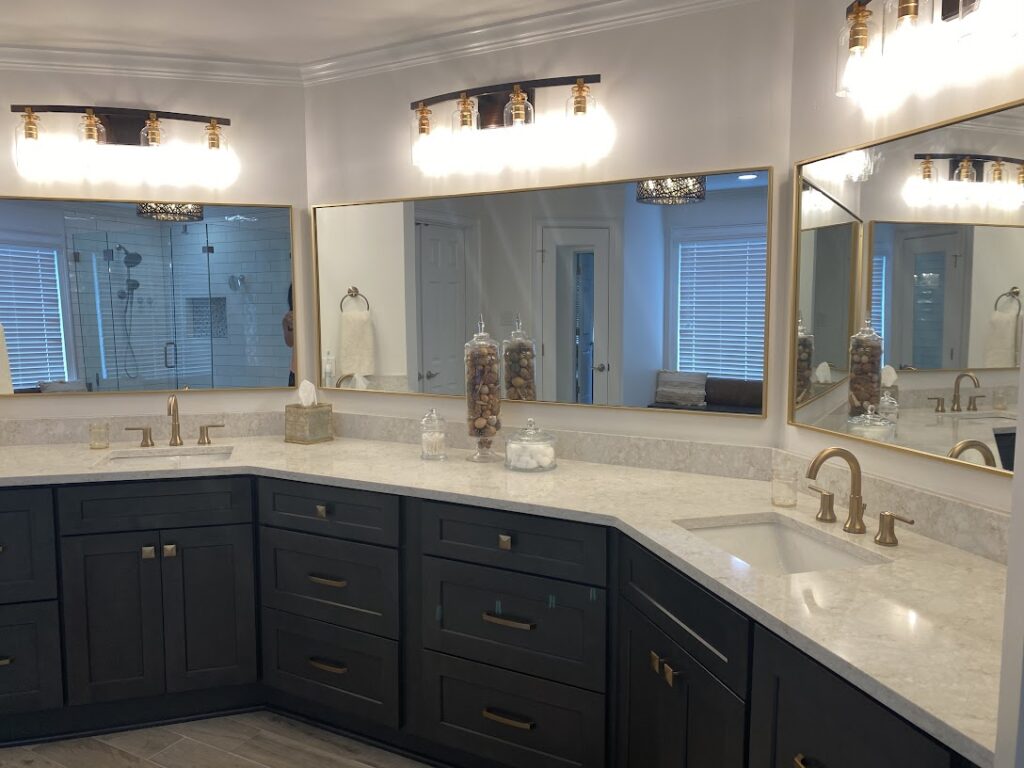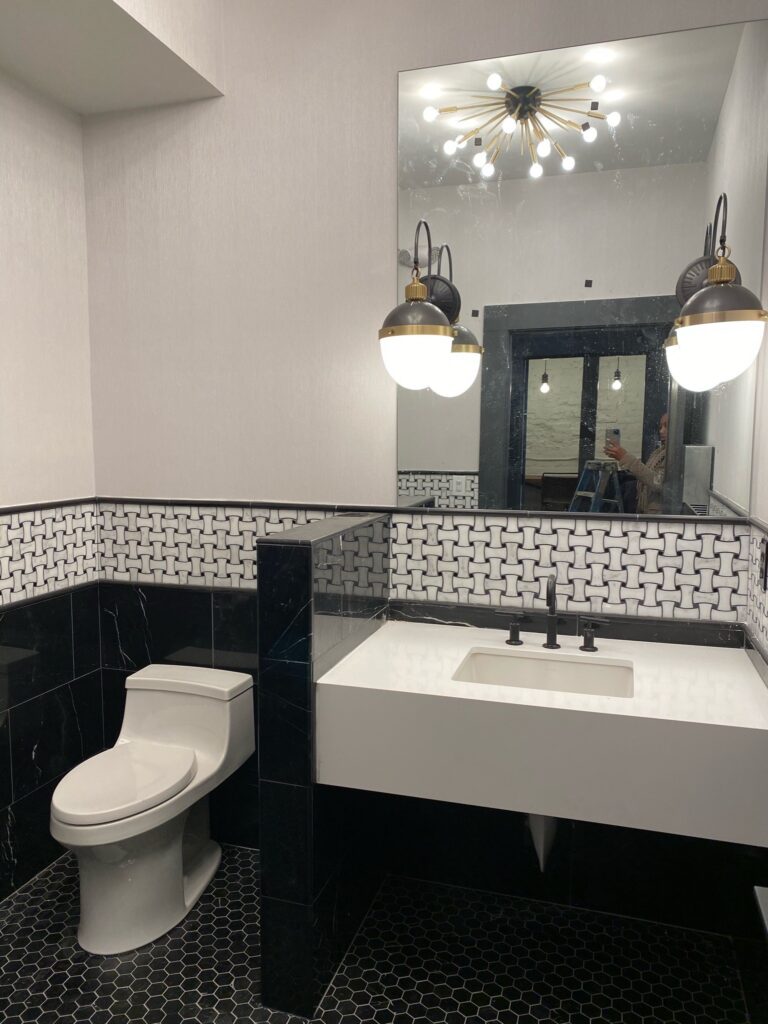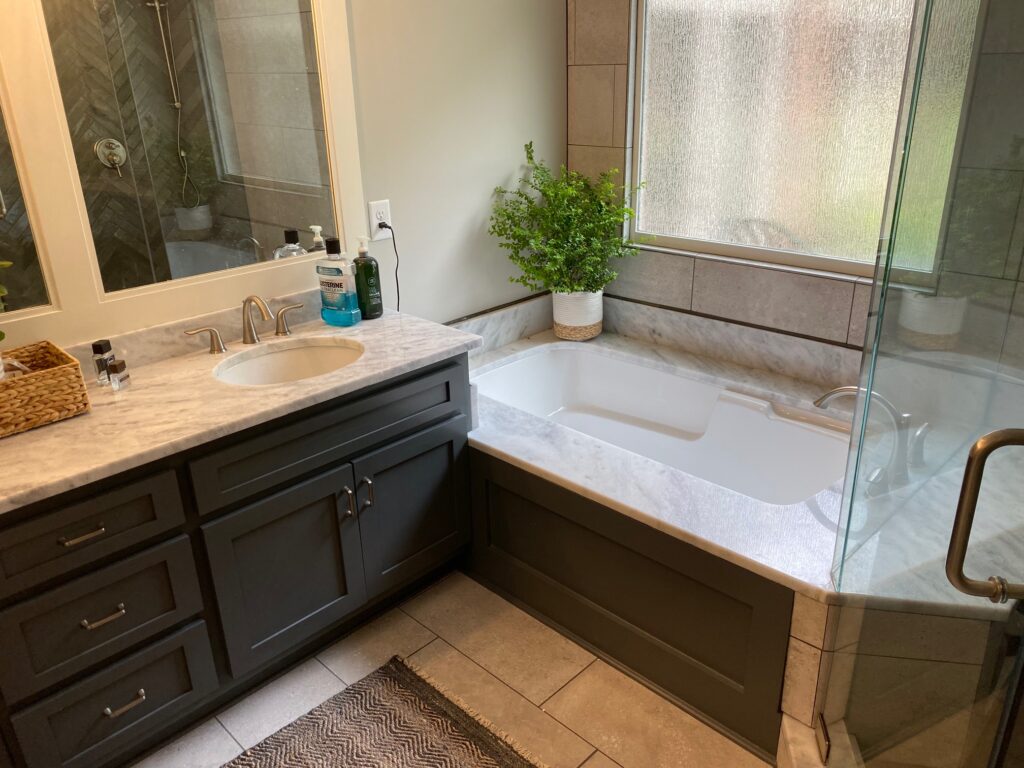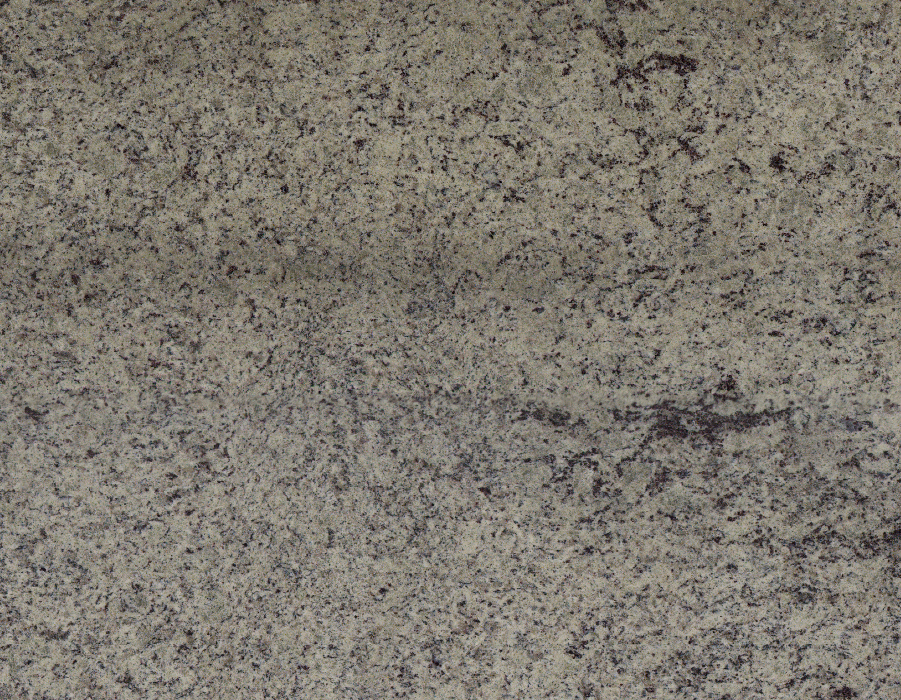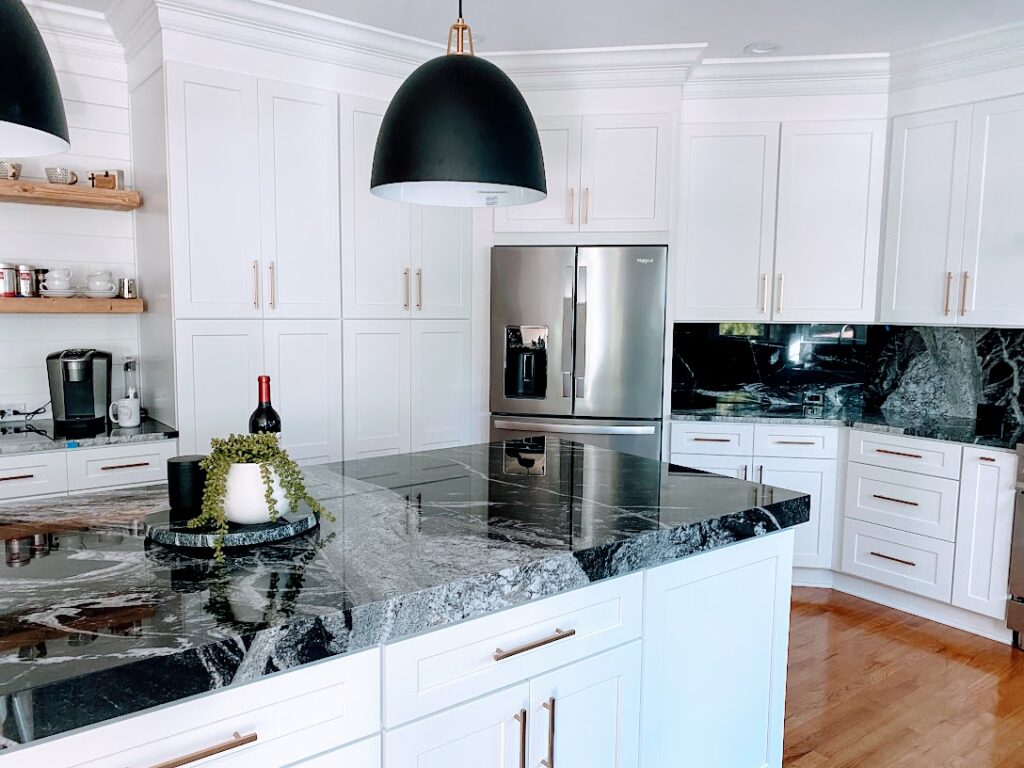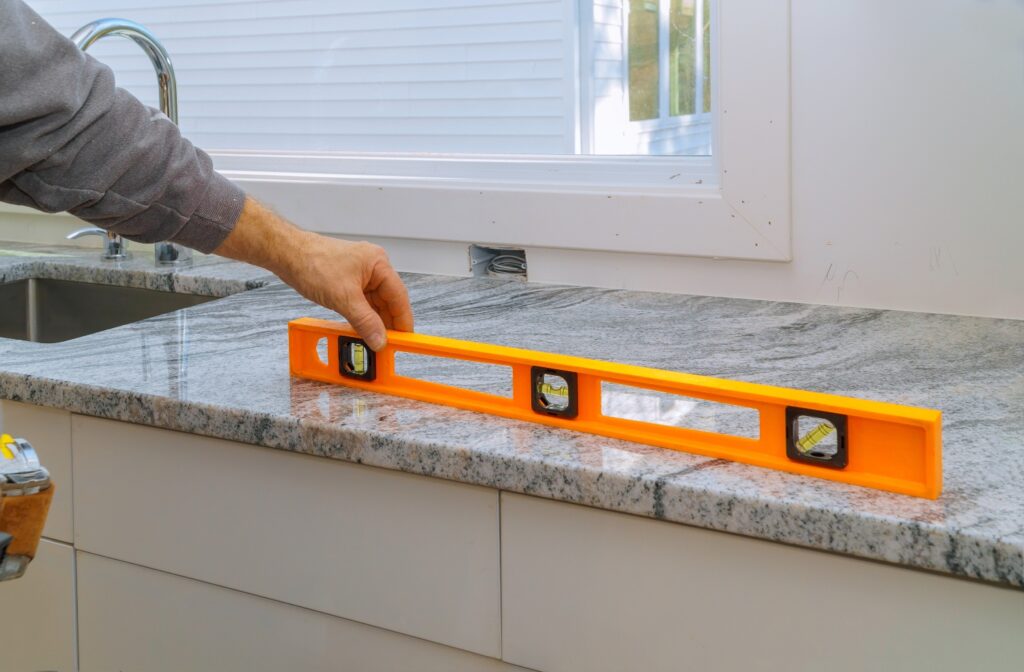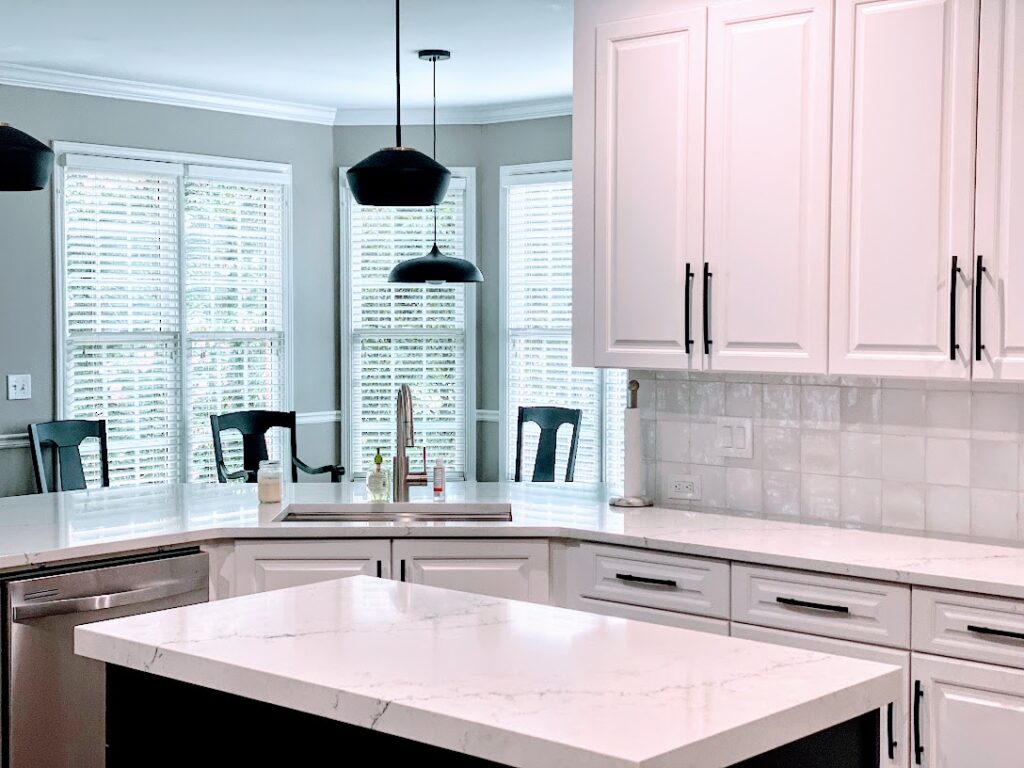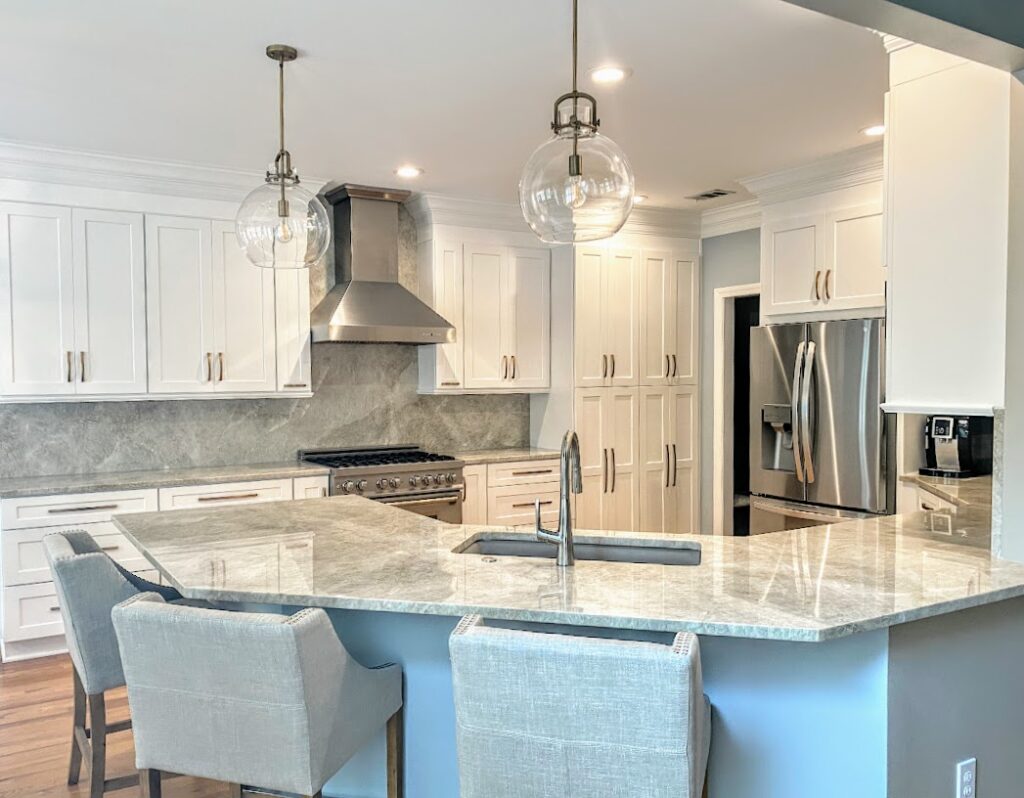Granite Countertops: Are They Right For You?
Granite countertops are a beautiful and popular choice for kitchens and bathrooms, but they’re not without their drawbacks. Let’s take a closer look at the pros and cons to help you decide if granite is the best fit for your home.
What is Granite?
Granite is a natural stone that’s taken directly from the earth, then cut and polished for countertops (and other uses). Its unique patterns and colors are formed by the mix of minerals present during formation. Each granite slab is one-of-a-kind!
Advantages of Granite Countertops
Incredibly Durable
Granite is one of the toughest countertop materials available. It’s highly resistant to heat, scratches, chips, and stains, making it a perfect choice for busy households. Whether you’re placing hot pots and pans fresh off the stove or prepping ingredients for a family meal, you won’t have to worry about damaging your countertops. And unlike other materials that can show wear and tear over time, granite’s durability ensures your countertops will look stunning for years to come.
Natural Beauty
Granite comes in a fantastic array of colors and patterns, from deep, rich blacks and grays to vibrant greens and blues. Earthy tones like golds, browns, and creams are also popular choices. These natural variations create a sense of elegance and sophistication that you just can’t achieve with manufactured materials. No two granite slabs are exactly alike, so you can be sure your countertops will be truly unique.
Easy to Maintain
Granite is naturally stain-resistant because it’s a non-porous stone. This means it won’t absorb spills like liquids or oils, making cleanup a breeze. However, to ensure complete protection, applying a topical sealant is recommended. Sealant helps further repel liquids and protects against etching from acidic substances like wine, vinegar, or citrus juice. Sealing your granite countertops is a simple process that can be done periodically (typically every 1-2 years) to maintain their stain resistance and overall beauty.
Boosts Home Value
Granite countertops are considered a luxurious upgrade. They instantly elevate the look and feel of your kitchen or bathroom, making your home more attractive to potential buyers. Granite’s timeless beauty and reputation for quality are sure to impress. Additionally, since granite countertops are a durable and long-lasting material, they can add significant value to your home during resale. In fact, studies have shown that homeowners can recoup up to 25% of the cost of installing granite countertops when they sell their home.
Disadvantages of Granite Countertops
Pricey
Granite is indeed a premium material known for its elegance, durability, and timeless appeal. Compared to other countertop options, granite countertops come with a higher price tag. The cost of granite countertops can vary depending on several factors such as the color, pattern, thickness, and edge profile you choose. Additionally, the complexity of the installation process and the geographic location can also influence the overall price.
Needs Maintenance
Granite countertops need regular maintenance to stay in good shape. The sealant applied to them needs to be reapplied often to prevent stains and bacteria from growing. Also, acidic things like lemon juice or wine can etch the surface of the granite, making it dull and discolored. This means that homeowners must be careful about what they put on their granite countertops and clean up spills right away to prevent damage.
Environmental Concerns
Using granite countertops has an environmental downside due to the quarrying and transportation processes. Obtaining granite requires substantial resources, and the process can harm the environment. Homeowners should be mindful of the type of granite they choose and ensure it is safe for use in their homes.
Somewhat Limited Designs
One disadvantage of granite countertops is their limited design options compared to other materials. As a natural material, granite cannot be customized to create unique designs or colors. This limitation may not suit homeowners with specific design preferences or color schemes for their kitchen or bathroom spaces.
Granite vs. Other Options
When evaluating the choice between granite countertops and other materials, there are several crucial factors to consider, each playing a significant role in the decision-making process. Here are some key points to ponder:
Quartz
Quartz countertops are a popular alternative to granite countertops. They are made of a man-made material that combines crushed quartz with resin, resulting in a surface highly resistant to scratches and stains. Quartz countertops are comparable to granite in terms of durability and aesthetics but require less maintenance and are available in a more extensive range of colors and patterns. This makes them a great choice for homeowners who want a specific design or color scheme for their kitchen or bathroom.
Laminate
While we don’t offer laminate countertops, they are an affordable alternative to granite. They are made by attaching layers of plastic to particleboard, so they are lightweight and easy to install. Laminate countertops, however, are not as durable as granite. They can be scratched or chipped easily and have a limited selection of designs, making them less aesthetically pleasing than other materials.
Solid Surface
Solid surface countertops are made from a combination of resin and minerals. They offer a seamless surface and are highly resistant to scratches, stains, and heat. In terms of durability and maintenance, solid surface countertops are comparable to granite. However, they have fewer color options, which makes them less popular than other materials. Solid surface countertops are less expensive than granite but more expensive than laminate countertops.
The Bottom Line
In conclusion, granite countertops provide exceptional durability, aesthetic appeal, and low maintenance, while also increasing a home’s value. However, disadvantages include a high initial installation cost, regular upkeep, environmental concerns, and limited design options. To make an informed decision, homeowners should carefully consider the pros and cons of granite countertops in relation to their individual needs, preferences, and budget.
When comparing granite to other materials, several factors come into play. Quartz countertops offer similar durability and aesthetics, but are less porous and thus more resistant to stains and bacteria. Laminate countertops are a cost-effective alternative but lack the durability and visual appeal of other materials. Solid surface countertops provide a similar level of durability and maintenance as granite, but with more limited color choices.
Ultimately, the decision between granite and other materials depends on a homeowner’s personal preferences, needs, and budget. By carefully evaluating the advantages and disadvantages of each option, homeowners can make an informed choice that meets their requirements and enhances the beauty and functionality of their home.
Related Posts
Beyond the Countertop: Creative Ways to Use Granite in Your Bathroom
How to Match Granite Countertops with Bathroom Vanities and Cabinets
Dark vs. Light Granite: Which One Works Best for Your Bathroom?

Val Carvalho is a manager at Atlanta Stone Creations, with nearly two decades of experience in the stone and design industry. In addition to her leadership role, Val plays a key part in sales and design, bringing creativity, precision, and a strong sense of style to every project. Known for her warm and collaborative approach, she builds strong relationships with both her team and her clients. Val is passionate about delivering beautiful, high-quality results and creating an exceptional experience from start to finish.

